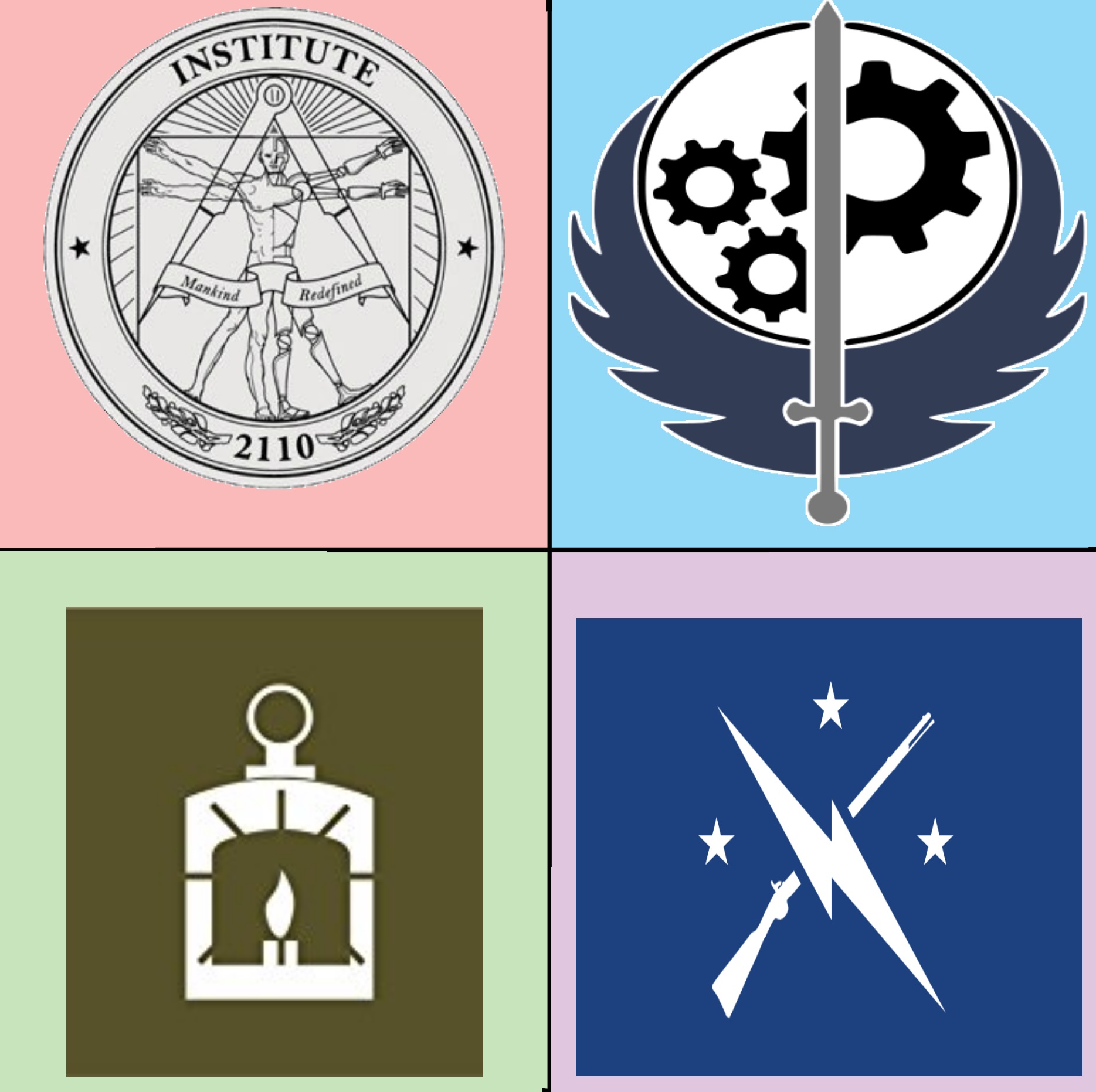Obvious Allegiance
By Anthony Casperson
5-27-23
In a number of video games, the player will come across various factions all vying for power. Each will have a perspective on the world and how it should be run. Oftentimes, there will be completely opposing viewpoints. And these factions have their own specific questlines.
However, in a few of these games, there will come a point where the player will need to make a choice about which faction to back. And that choice will lock them out of the other factions’ questlines. If the player character even attempts to talk to someone in a competing faction, that NPC will show contempt at them for trying to play multiple sides. The choice of faction the player made is so evident to the other characters that there’s no fooling them.
The PC’s allegiance is obvious. And there’s no middle ground that can be made between the factions.
As we come to the second blog in our series, “Summer on the Mount,” we see Jesus show those who listen to his sermon that to be a citizen of his kingdom calls us to have an obvious allegiance to him and his ways. An allegiance that will lead us to occasions where those outside of our chosen kingdom will show their contempt for our choice of faction.
Remember, in the last blog, we saw the flipped-over favor of divine privilege bestowed upon those who take part in his kingdom. And Matt. 5:12 ended that section with a reminder that we should rejoice when we are recipients of persecution for the sake of Jesus. Even the prophets of God were persecuted by the people of Israel.
And then immediately after that verse we come to our section of Jesus’ sermon in Matt. 5:13-16, where he emphasizes the authentic and obvious allegiance that we followers of Jesus should have in the world. Not only should we consider the seemingly upside-down nature of Jesus’ kingdom to be the right way—even if it causes us to suffer—but we should also not run or hide from that possible persecution.
Because our allegiance should be so obvious that anyone from other kingdoms and factions can just look at us and know that we don’t belong to theirs.
Jesus shows this obvious nature with a couple of examples—the second of which he splits into two methods of viewing the idea. These examples are salt and light.
Verse 13 gives us the first example. Jesus speaks of salt losing its saltiness. In our understanding of salt, it seems impossible for salt to not be salty. That’s kinda the point. But there are two things I want to show in order for us to understand this better.
To start with, while the Greek word translated as “lose saltiness” can give that idea in the context of the situation—which is why the translations all do this—the word itself has nothing inherently unsalty about it. In other contexts, it is translated as “be made foolish” or “revealed to be foolish.” The word from which we get “moron” is the root of this word. And so, we can get a sense of salt being counterfeit. Something that looks like salt, but isn’t really. Thus, it should not be used as seasoning, because it would never flavor anything.
And this understanding of counterfeit salt leads us to the second thought about less-than-flavorful salt. The southern parts of Israel are near the Dead Sea. This body of water that is so salty that areas of tiny grains that look like salt—and includes small amounts of the sea’s salt—sit at the rim of the water.
People were able to collect the substance and sell it off as salt. But the thing was that there were so many impurities mixed in those grains that there might not actually be any salt in it. And thus, the salt was counterfeit. The inauthenticity proven in the first bite, when what should have been obvious seasoning is missing.
And what can you do when the seasoning has no flavor? Do you re-season? Is it even worth it? Because using more of the same thing won’t yield the flavor of salt. And using authentic salt means that the previous seasoning was all for naught.
It was a waste. And can be useful for nothing at all. The counterfeit can only be thrown out because it obviously isn’t salt. You can tell with the first bite.
Jesus calls his followers, those who belong to his kingdom, the salt of the world. A person’s first encounter with us should reveal the obvious nature of our allegiance. There should be no doubt. Anything that’s not salty isn’t salt. And anything that’s not Christ-like isn’t a citizen of the kingdom.
This isn’t to say that we need to fill our language with Christian-ese jargon. There is a jarring nature to too much salt. But what it does mean is that the flipped-over nature of Jesus’ kingdom should be on display in our lives so much that people can tell there’s something different about us. (And I admit that this is something that is difficult to live. I know that I struggle with this just as much as anyone else. But it is the way of the kingdom.)
In verses 14-16, Jesus gives us the second example of light. Again, light is obvious in the darkness. Jesus says that a city on a hill can’t be hidden. A city’s lights are a beacon to anyone wandering in the darkness.
They are a guide to those seeking to find access to the city. And a target for any enemy skulking around in the dark.
Jesus changes the exact image of light in verse 15. He talks about a lamp in a house. And how ridiculous it would be for a person to hide that light under a basket. Trying to hide the light defeats the entire purpose of the lamp. Why even light the lamp, if all you’re going to do is hide the light?
Rather, the usefulness of a lamp is to set it up on a pedestal or tall table so that its light reaches the furthest reaches of the room. Let the lamp shine brightly as it was designed to do.
Likewise, we followers of Jesus should let our light shine. Let our godly and Christ-like actions spread out and reach the darkened world as we were designed to do.
We are salt and light. Obvious from first bite and first sight.
Jesus teaches his followers that to be a citizen of his kingdom is to be locked into his questline. And those outside of his faction should know it just by looking at us. There is no middle ground with his kingdom. No dual citizenship between Christ’s kingdom and the kingdom of the world.
Yes, we live in the world, right alongside those who don’t follow Jesus. And yes, we must reach out to them so that they might one day join Jesus’ kingdom. But our primary identity—the very first and most important aspect of who we are as a person—should be citizen of Christ’s kingdom.
Our allegiance should be obvious to all.



